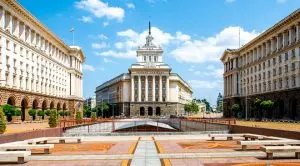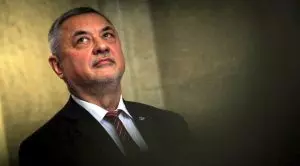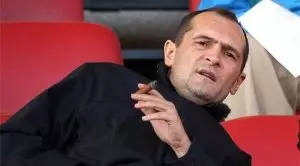 In the last month, the events in the Bulgarian gambling sector have been developing rapidly and at multiple levels.
In the last month, the events in the Bulgarian gambling sector have been developing rapidly and at multiple levels.
Earlier in January, a bill aimed at banning private lotteries in Bulgaria has been tabled by Valeri Simeonov, a member of the National Front for Salvation Party. The proposed amendment to the Bulgarian Gambling Act of 2012 seeks to impose a government-owned monopoly on the country’s lotteries by suspending the operation of private lotteries.
Under the changes that Simeonov has suggested to be made to the country’s gambling legislation, the only entity allowed to organise lotteries on the territory of Bulgaria has to be the Bulgarian Sports Totalizator (BST). Still, private companies would be able to organise bingo, raffle and keno games. The proposed amendment seeks to terminate the operating licences of all private lottery games three months after the bill is passed. After that, they would be expected to withdraw from the Bulgarian gambling market.
Local Lawmaker Proposes Changes That Would Impose Statewide Monopoly in the Lottery Sector
 The proposed amendments to the Bulgarian Gambling Act have already been adopted at the first reading in plenary meeting. The ban on private companies organising lottery games was backed by 116 to 2 votes during the plenary meeting, with 68 abstentions.
The proposed amendments to the Bulgarian Gambling Act have already been adopted at the first reading in plenary meeting. The ban on private companies organising lottery games was backed by 116 to 2 votes during the plenary meeting, with 68 abstentions.
Apart from the ban, lottery tickets and scratchcards will be sold at licensed sites only, rather than in all kinds of retail outlets where they are currently available. Under the new rules, the sale of lottery tickets and scratchcards would not be allowed at sites situated less than 300 meters away from schools.
In case the proposed changes are adopted by the country’s lawmakers, the Bulgarian Sports Totalizator will be the only one to organize lottery games. The operating licences of the “National Lottery” and “Lottery Bulgaria” would be revoked. Also, as part of the amendment, the bill sets a 30-day obligation for the operators whose licence would be terminated to establish an unconditional and irrevocable bank guarantee for the players’ winnings that have not been paid out by the time their licences are revoked.
After the vote at the first reading took place, Valery Simeonov commented that he was unaware of the other suggested amendments to the Gambling Act that have been unveiled by the Ministry of Finance and include some new fees for gambling games. Furthermore, Mr Simeonov explained that his bill does not contradict to the Bulgarian constitution, as the proposed changes do not suggest a sector-wide monopoly and the gambling industry is to remain as it is in some of its other services.
Prosecutor Raids Carried Out, While Gaming Mogul Faces a Series of Charges
 As mentioned above, the turmoil in the Bulgarian gambling sector has been developing on several levels.
As mentioned above, the turmoil in the Bulgarian gambling sector has been developing on several levels.
Apart from the newly-proposed changes to the country’s Gambling Act of 2012, Bulgarian gaming behemoth Vasil Bozhkov has faced charges in absentia with organising a crime group, attempted bribery and extortion.
Currently, the 63-year-old man is one of the richest people in Bulgaria, with his fortune estimated at about $1.5 billion. Bozhkov has been known for his interests in the gambling industry, hotels, media outlets. He is the owner of more than 30 companies in different sectors. The gambling boss has recently been targetted in a report compiled by the then-US ambassador John Ordway. It suggests that Bozhkov was related to organised crime groups but was moving out of them in order to concentrate on his legitimate businesses.
The report alleged that Bozhkov is still associated with privatization fraud, money laundering, intimidation, illegal antique dealing, extortion, racketeering, etc. The offices of Nove Holding, one of the companies owned by the controversial businessman, were raided by prosecutors. Currently, the firm runs a number of the largest bookmakers and lottery operators on the territory of Bulgaria. Following the raid, prosecutors revealed that the gambling mogul was facing seven separate charges. They, however, refused to provide any more details on the matter.
The move has followed a long-time pressure from the European Union that has been urging the country’s Government to cut the connections between some governing officials and the Mafia. Whether the recent charges against Mr Bozhkov, who has once been considered “untouchable” by the authorities, could mean that an increasing number of lawmakers are willing to cut the ties that once brought Bulgaria the “Mafia state” nickname.
On January 29th, the Bulgarian Gambling Commission was raided, with its head Alexander Georgiev being detained for questioning. This has been the second prosecutor raid there in a fortnight. Local media have reported that 18 of the Commission’s employees were also taken in for questioning, but it still remains unknown whether any of them were detained after that.
- Author


